Florida Auto Insurance
8:30am - 5:00pm Mon-Fri
Will Reply in 15min*
Index
Contact Us
Phone
Location
6900 Tavistock Lakes Blvd, Suite 400, Orlando FL 32827
Auto insurance is essential in Florida, and all drivers must purchase a minimum of coverage to be able to drive legally. In case you are stopped or involved in an accident, you must be able to show proof of insurance. Auto insurance is crucial in Florida because it helps to protect you financially if you are involved in a crash. It also covers medical expenses, vehicle repairs, and other damages that may arise from an accident.
What are the Minimum Auto Insurance Requirements in Florida?
Auto insurance in Florida is regulated by the Florida Department of Insurance and Financial Services (DFS). The minimum insurance coverage required by law in the state of Florida includes:
a) Property damage liability (PDL)
Property Damage Liability, or PDL, is the minimum requirement for auto insurance in Florida. This coverage helps cover repairs and damages to other people's property after an at-fault accident. It will also pay for legal fees if you are sued over an accident. Note that this kind of policy does not pay damage to your personal property or car.
The minimum amount of PDL required by law in Florida is $10,000. This amount may not be enough to cover all of the damages from a serious accident, so it can be beneficial to purchase additional coverage if you can afford it.
PDL is generally relatively inexpensive and can provide peace of mind if you are ever involved in an accident. Purchasing adequate auto insurance can help protect your finances and assets in an at-fault accident.
b) Personal injury protection (PIP)
Personal Injury Protection, or PIP, is an important type of auto insurance coverage required by law in Florida. This coverage helps to pay for medical bills and lost wages if you are injured in a car accident. It also covers passengers who do not have their own health insurance policies.
PIP provides coverage up to $10,000 in financial assistance per accident. This only covers 80% of the cost of care. In the event you get injuries in a crash, you will be required to pay for the remaining 20% from your pocket or your health insurance.
PIP includes a $5,000 death benefit and a disability benefit that pays 60% of lost income if the policyholder cannot work due to injuries. The $10,000 limit is a combined limit for all benefits, which also applies to other people in your household unless they have their own insurance.
If you're not working or retired, you can lower your premium by not including the lost-income benefit, but this is not recommended for those who still rely on their earnings. Another way to save is by choosing a higher PIP deductible, which can range from $250 to $1,000, which will increase your financial burden after an accident.
Other Types of Optional Auto Insurance Coverages in Florida
To be save, you can choose to purchase additional auto insurance coverage. This may include:
a) Collision Coverage: Collision coverage helps to pay for the repairs to your own vehicle in the event of an accident. This type of policy will provide financial assistance for minor and significant damages caused by a collision, whether or not you are at fault. It’s important to note that most collision policies have a deductible, which is the amount you will be responsible for out of pocket.
b) Comprehensive Coverage: Comprehensive coverage helps to pay for damages caused by something other than an accident, such as theft, vandalism, or natural disasters. Again, this type of policy typically has a deductible and can help to protect your vehicle from unexpected damages.
c) Uninsured/Underinsured Motorist Coverage: This coverage helps to pay for medical expenses and property damage if you are involved in an accident with a driver who does not have enough insurance coverage or is uninsured. It’s important to note that this policy will not cover your vehicle’s damages.
d) Medical Payments: Medical payments coverage helps to pay for medical bills if you or a passenger in your vehicle is injured in an accident. This type of policy pays regardless of who is at fault and will cover the costs of ambulance services, hospital stays, and surgeries.
e) Bodily Injury Liability: Bodily Injury Liability coverage helps to pay for costs associated with injuries sustained by the other party in an accident where you are at fault. This type of policy usually comes with a minimum and maximum limit that can help to protect your assets if you are ever sued following an auto accident.
f) Roadside Assistance: Roadside Assistance coverage helps to pay for the cost of services such as towing, gas delivery, and tire changes when your car breaks down. This type of policy can provide peace of mind if you ever find yourself stranded on the side of the road.
g) Gap Insurance: Gap Insurance helps to pay for the difference between your car’s actual cash value and what you still owe on it if it is totaled in an accident. Notably, this policy does not cover the cost of repairs to your vehicle but can help protect you from owing more than the car is worth.
h) Rental Reimbursement: Rental Reimbursement coverage helps pay for rental cars if your car needs to be repaired following an accident or other covered incident.
By choosing the right combination of auto insurance coverage, you can be sure that you are fully covered in the event of an accident or other unexpected damages. Be sure to review your policy periodically to ensure that it still meets your needs and covers you for all potential risks.
No-fault Auto Insurance Laws of Florida
The car accident liability system in Florida is based on "no-fault" principles. This means that in the event of an accident, each driver is responsible for their own injuries and related expenses, regardless of who caused the accident. This applies to both the driver and their passengers. When an accident occurs, the driver will file a claim under their personal injury protection (PIP) coverage for their medical expenses.
However, it's important to note that if the accident causes someone harm or injuries that exceed the limit of their insurance coverage, they may choose to sue the at-fault driver for additional compensation.
It is possible for an individual who was injured in a car accident in Florida to file a lawsuit if their medical expenditures exceed the limitations of their PIP coverage. In such cases, the person may sue the at-fault driver for the excess amount. So, even though Florida is a no-fault state, it does not exclude the possibility of legal action for those harmed in an accident.
What are the Penalties for Not Carrying Insurance in Florida?
As a no-fault state, Florida’s laws require all drivers to carry a minimum amount of Personal Injury Protection (PIP) and Property Damage Liability insurance coverage, otherwise known as “no-fault” coverage. If you fail to maintain the necessary auto insurance coverage in Florida, you could face several penalties and sanctions.
a) First offense: If you are caught driving without insurance, you could face a suspension of your driver’s license and registration for up to three years. You will also be required to pay a reinstatement fee of $150 as well as provide proof of financial responsibility.
b) Second offense: If you are convicted of driving without insurance for a second time within five years, the state can suspend your license and registration for up to five years. You will have to pay a reinstatement fee of $250 and provide proof of financial responsibility.
c) Third offense: If you are convicted of driving without insurance three or more times within five years, your driver’s license and registration could be revoked permanently. You will have to pay a reinstatement fee of $500 and provide proof of financial responsibility.
It’s important to understand the penalties for driving without insurance in Florida to avoid these costly sanctions and ensure your vehicle is adequately insured.
Your Right to Sue After a Car Accident in Florida
In Florida, it is possible to file a lawsuit for pain and suffering caused by an accident; however, the laws in Florida are stricter compared to other states. It is possible to seek compensation for medical expenses and other financial losses after personal injury protection (PIP) limits have been reached, but it is not possible to sue for emotional distress or other non-financial losses unless certain conditions are met.
A court may make an exception to Florida's limited lawsuit rights and award compensation for pain and suffering if the individual meets one of the specific criteria outlined below:
- Significant disability, in which you have lost one or several bodily functions.
- Permanent injury, based on the doctor's view.
- Significant disfigurement, based on the court's opinion.
- Death.
Having any Questions? Talk to Us Now
If you have any questions about auto insurance requirements in Florida, don't hesitate to contact us. Our team of experienced professionals is here to help you understand your coverage options and find the right policy for you.
We can provide advice on everything from liability limits and deductibles to accident forgiveness and uninsured motorist coverage. Plus, with our competitive rates and flexible payment plans, you can rest assured that we will work with your budget to get the coverage you need.
Contact us today, and let us help you protect yourself and your loved ones on the road. We look forward to hearing from you soon!








